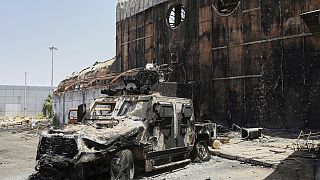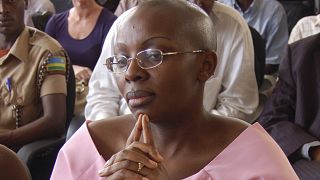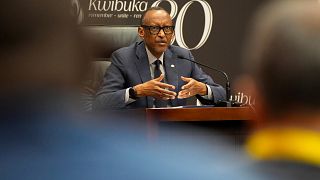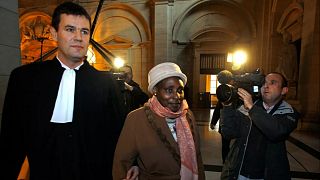Rwanda
The United Nations on Monday marked the 31st Commemoration of the International Day of Reflection on the 1994 genocide in Rwanda.
Addressing the commemorative ceremony at the U.N. General Assembly, Secretary-General Antonio Guterres said Rwanda’s history reminds us that "no society is immune from hate and horror."
Guterres also called on all countries to become parties to the Genocide Convention without delay and protect their populations from genocide, war crimes, ethnic cleansing and crimes against humanity.
Robert Kayinamura, Rwanda's U.N. ambassador said the phrase ‘never again’ must go beyond symbolism. "It must guide our policies, actions, and be a litmus test to our collective morality and responsibility.”
This year's event is overshadowed by the ongoing crisis in the eastern DR Congo, where the Rwanda-backed M23 militia has gone on a rampage against the authorities, seizing two major towns of Bukavu and Goma.
Locally known as ‘Kwibuka’, meaning Remembrance Day in Kinyarwanda, this year's event marked the 100th anniversary since the eastern African country began commemorating the day in 1994.
On April 7, 1994, a day after the presidents of Rwanda and Burundi died in a missile attack on their aircraft, the moderate Hutu prime minister of Rwanda, Agathe Uwilingiyimana, and her husband were killed by Rwandan soldiers; in the 100 days that followed, Hutu extremists slaughtered hundreds of thousands of minority Tutsi and Hutu moderates.











01:13
Uganda reopens border with M23-held eastern DRC
00:56
Peace talks between DRC and M23 rebels 'moving in the right direction'
01:35
Catholics in eastern Congo honor beatified anti-corruption martyr
01:04
Uganda secretly sends hundreds of troops to DR Congo - UN experts
01:12
Eastern DRC tensions: UN points to Rwanda's role in AFC/M23 conflict
02:10
Congo-Rwanda deal: Uncertainty over whether the hostilities will end